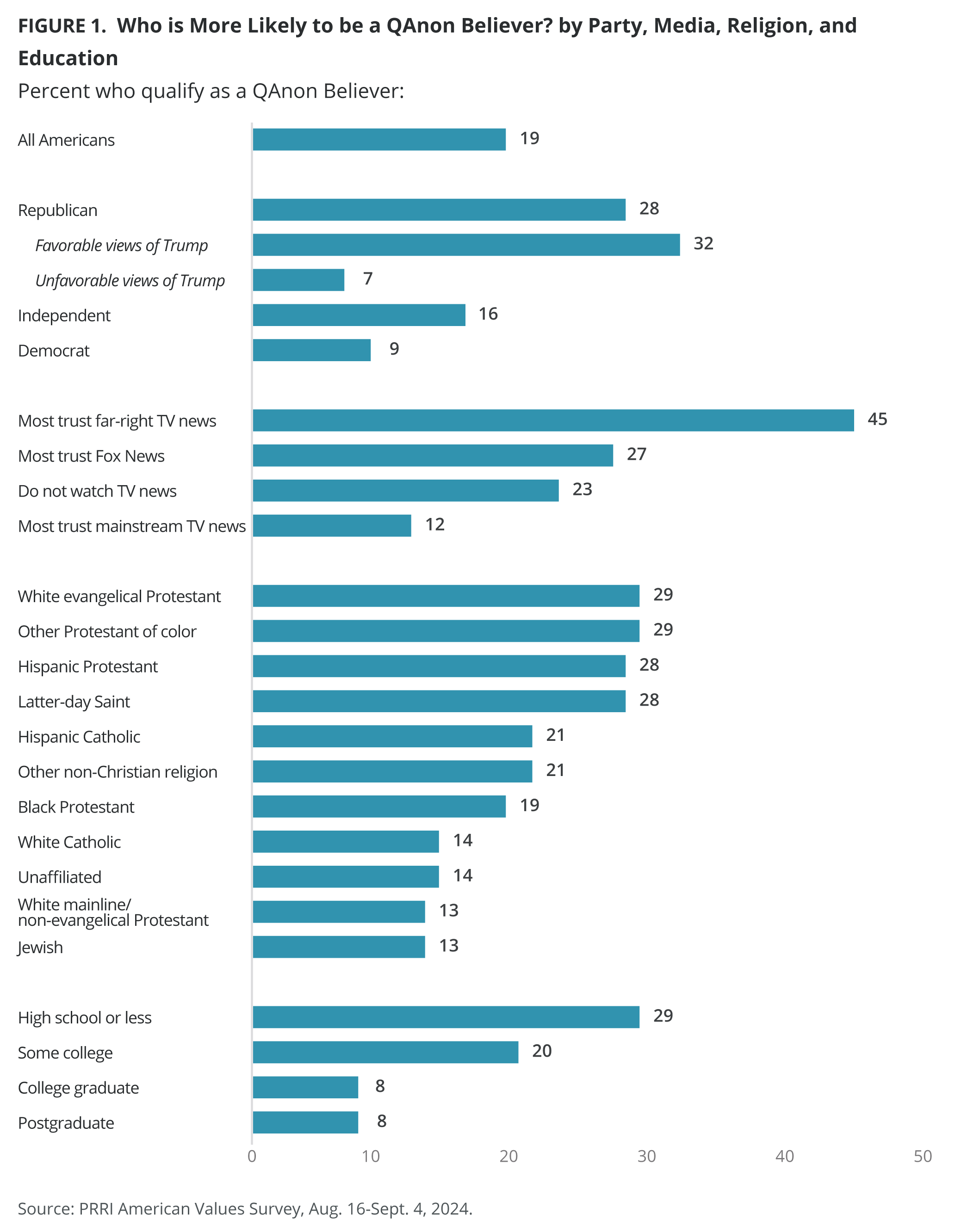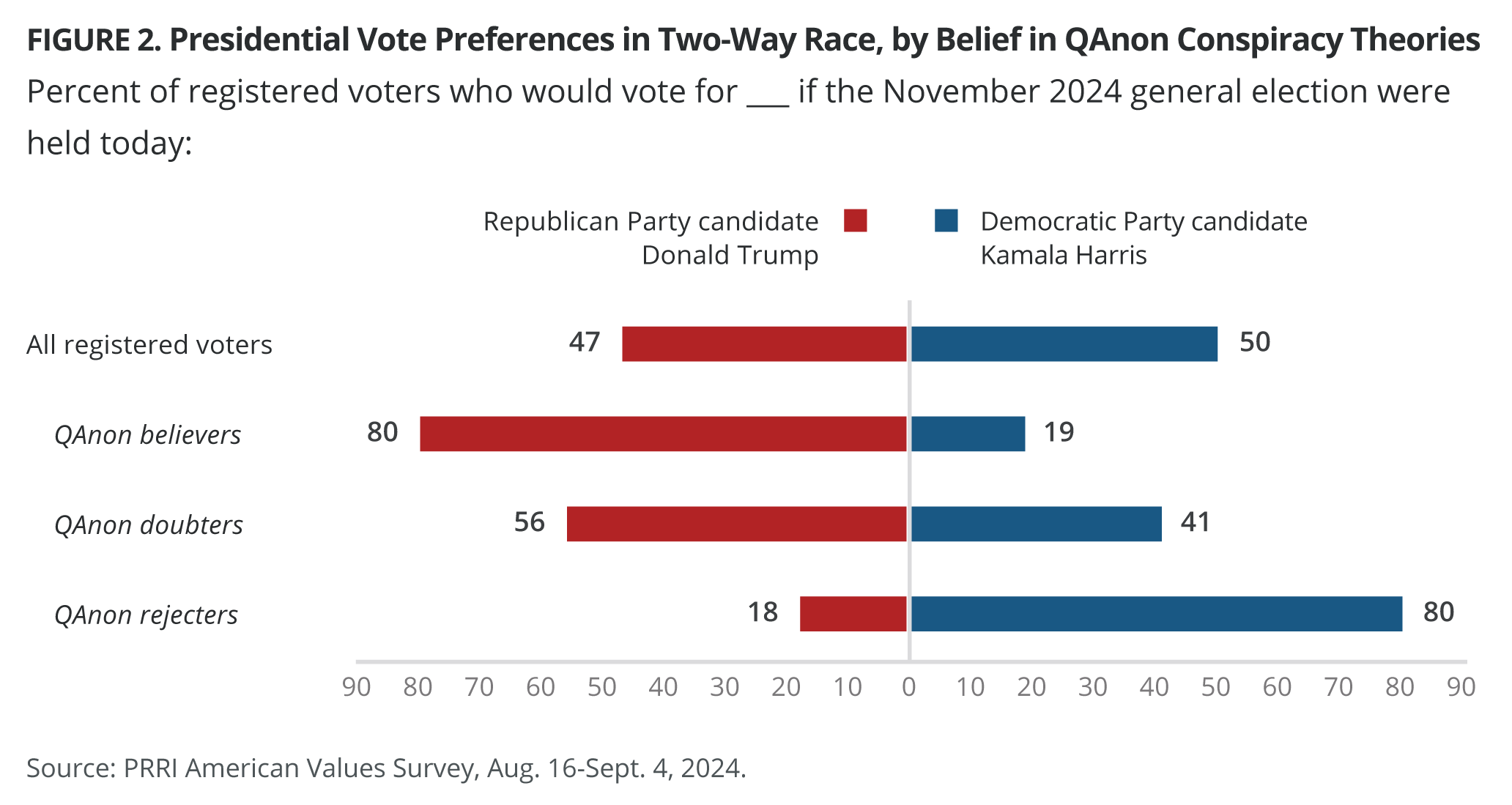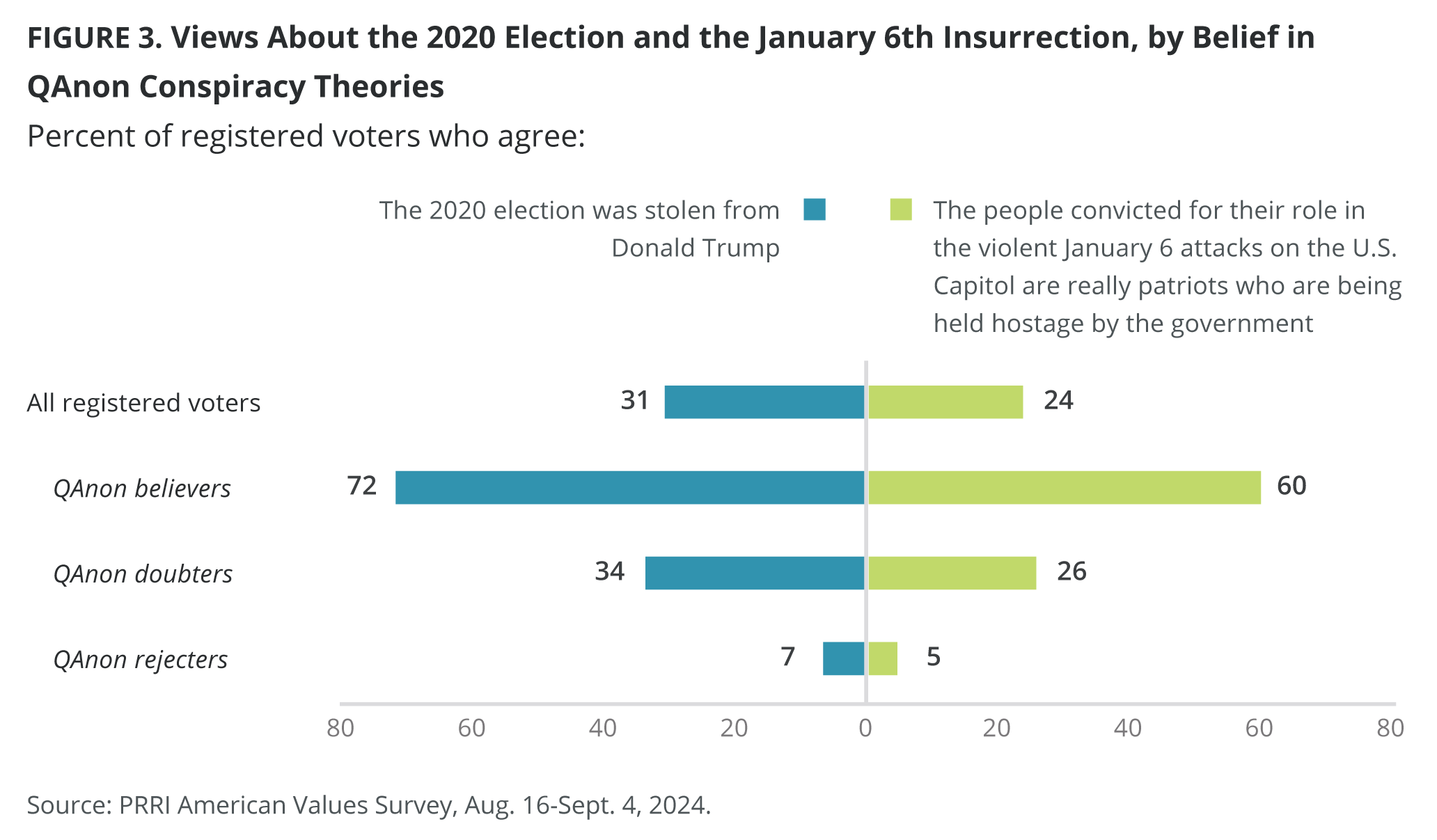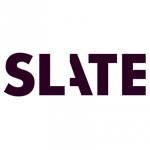The 2024 presidential election has been filled with conspiracy theories led by QAnon, a conspiracy theory movement that emerged on the internet in 2017 and remains an influential force in American politics. Initially centered around the belief that former President Donald Trump was conducting a secret war against Satan-worshipping pedophile elites, QAnon has evolved and adapted to the current political landscape. Despite being widely discredited, the movement retains a devoted following, which now extends into mainstream politics, influencing some voters, candidates, and political discourse. This Spotlight examines what Americans are likely to be QAnon believers, their views on the 2024 presidential election, and their preferred candidate.
Who Is Likely to Be a QAnon Believer?
To understand this movement, PRRI has fielded a set of questions since 2021 measuring the extent to which Americans agree or disagree with the following statements: (1) Because things have gotten so far off track, true American patriots may have to resort to violence in order to save our country, (2) There is a storm coming soon that will sweep away the elites in power and restore the rightful leaders, and (3) The government, media, and financial worlds in the U.S. are controlled by a group of Satan-worshipping pedophiles who run a global child sex trafficking operation.” Based on a composite score of these three statements, PRRI finds that nearly two in ten Americans (19%) are QAnon believers, followed by 49% who are QAnon doubters and 32% who are QAnon rejecters. The percentage of believers has seen an increase from 14% in 2021, the first time PRRI developed the scale, to 19% in 2024.[1]
Republicans (28%) are more likely than independents (16%) and Democrats (9%) to qualify as QAnon believers. Republicans who hold favorable views of Trump are about five times as likely as those who hold unfavorable views of Trump to qualify as QAnon believers (32% vs. 7%). Americans who most trust conservative news sources (45%) are roughly 20 percentage points more likely to be QAnon believers than those who most trust Fox News (27%) or those who do not watch TV news (23%). Just 12% of those who trust mainstream TV news are QAnon believers. Also, nearly three in ten Americans who receive their political information via YouTube (31%) qualify as QAnon believers, followed by one-quarter who get their news via social media (25%) or podcasts (22%), two in ten from radio (19%) or television (17%), and just 8% from newspapers or magazines.
Around three in ten white evangelical Protestants (29%), other Protestants of color (29%), Hispanic Protestants (28%), and Latter-day Saints (28%) qualify as QAnon believers, followed by around two in ten Hispanic Catholics (21%), members of other non-Christian religions (21%), and Black Protestants (19%)[2]. White Catholics (14%), unaffiliated Americans (14%), white mainline/non-evangelical Protestants (13%), and Jewish Americans (13%) are the least likely to qualify as QAnon believers. Americans who attend religious services at least once a week (25%) are more likely than those who attend at least a few times a year (20%) and those who attend seldom or never (16%) to qualify as QAnon believers.
Black (25%) and Hispanic Americans (23%) are more likely than white (17%), and AAPI (15%) Americans to qualify as QAnon believers, but do not differ from multiracial Americans (20%). QAnon believers decrease with age and education. More than two in ten younger Americans (22% for both ages 18-29 and 30-49), less than two in ten Americans ages 50-64 (18%), and more than one in ten Americans ages 65 and older (14%) qualify as QAnon believers as do 29% of Americans with a high school education or less, 20% of those with some college education, and 8% of those with a four-year degree or post-graduate degree.
Americans with incomes lower than $50,000 (31%) are more likely than those with incomes between $50,000 to $99,999 (19%) or $100,000 and higher (12%) to qualify as a QAnon believer. More than one-quarter of Americans in rural areas (26%) qualify as QAnon believers, compared with 17% in both suburban and urban areas.

Views on the 2024 Election
Presidential Candidate Favorability and Vote Preferences in Two-Way Race
In the lead-up to the 2024 U.S. presidential election, PRRI finds that QAnon believers (74%) are significantly less likely to be registered to vote than all Americans (81%), those who qualify as QAnon doubters (81%), and those who qualify as QAnon rejecters (89%).
Among registered voters, QAnon believers (78%) are significantly more likely than doubters (49%) and rejecters (15%) to hold favorable views of former president Donald Trump. By contrast, just two in ten QAnon believers who are registered to vote (20%) hold favorable views of Harris, compared with nearly four in ten doubters (38%) and three-fourths of rejecters (77%).
When asked who they would vote for if the 2024 general election were held today, registered voters who qualify as QAnon believers and rejecters mirror each other in their presidential vote preferences but for opposite candidates. While eight in ten QAnon believers who are registered to vote say they would vote for Trump (80%), the same is true for QAnon rejecters who say they will vote for Harris (80%). By contrast, among registered voters, roughly two in ten QAnon believers say they will vote for Harris (19%) while around the same percentage of QAnon rejecters say they will vote for Trump (18%). QAnon doubters who are registered voters are more split on their vote choice with 56% saying they will vote for Trump and 41% for Harris.

Thinking about the election results, QAnon believers who are registered voters are about twice as likely to say that Trump (34%) should declare the results of the election invalid if he is not declared the winner as to say the same for Harris (18%). Both QAnon doubters (9% and 7%, respectively) and rejecters (3% for both) are similarly likely to agree with declaring the election results invalid of either candidate if they are not declared the winners.
While the majority of QAnon believers who are registered to vote (67%) say that Harris would become a dictator if she were elected, just 22% say the same about Trump. In comparison, 42% of QAnon doubters and 76% of rejecters say that Trump will become a dictator, while 31% of QAnon doubters and 5% of rejecters hold this same view if Harris were elected.
Views on the Results of the 2020 Election
Among registered voters, the majority of QAnon believers (72%) say the election was stolen from Trump, compared with one-third of doubters (34%) and only 7% of rejecters.
Similarly, the majority of QAnon believers (60%) who are registered to vote say the people convicted for their role in the violent January 6 attacks on the U.S. Capitol are really patriots who are being held hostage by the government compared with 26% of doubters and 5% rejecters.

[1] For more information on how we measure and classify QAnon believers, see: prri.org/research/qanon-conspiracy-american-politics-report
[2] The number of cases for Latter-day Saints is 97. Results for this group need to be interpreted with caution.


